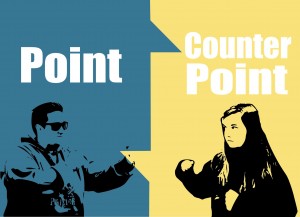March 22, 2016
Article 19 of the Universal Declaration of Human Rights states that “Everyone has the right to freedom of opinion and expression.” I find slang as a way for humans to express their true feelings through their words. That’s right, you have a right to slang.
Others may find slang vulgar, sloppy or repetitive, but realize you do not need to listen to it. Stop eavesdropping on it, or express your dislike to the hip-and-happening cool cat you are talking to. If I’m chilling with my homies and you overhear us say some slick words you don’t know, don’t throw off my groove. Simply change the channel, you don’t need to understand every conversation, let alone approve of it.
Slang is casual speech simply out of place for formal occasions, but in everyday speech it holds importance. You can use different styles of language at different times with different people, and you should. You don’t have to talk like you’re in a meeting with friends, but definitely do not be raunchy at the office.
Slang is the freedom to express ourselves on our own terms. It can spice up any conversation because it defies our expectations and sparks our brains. Slang takes you by surprise and challenges your typical form of thought to try and figure out what the wiggety-wiggety-whack someone is talking about.
The people who need the brain exercise of slang the most are those who resist it: older people and those who are stuck in their ways. These people tend to hate surprises, it cramps their old-fashioned style. Some people don’t want the brain work that slang requires, they want things to be easy and predictable. But where’s the fun in that?
Expand your horizons and expand your vocabulary, pick up a few slang words and try to drop them in your daily conversations. The English language is an ever-changing work of art that could use some spice.


